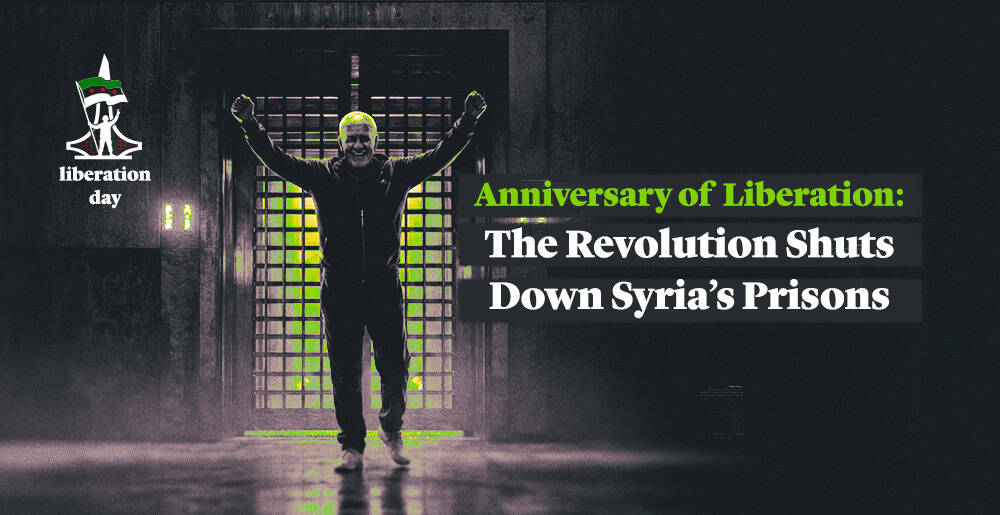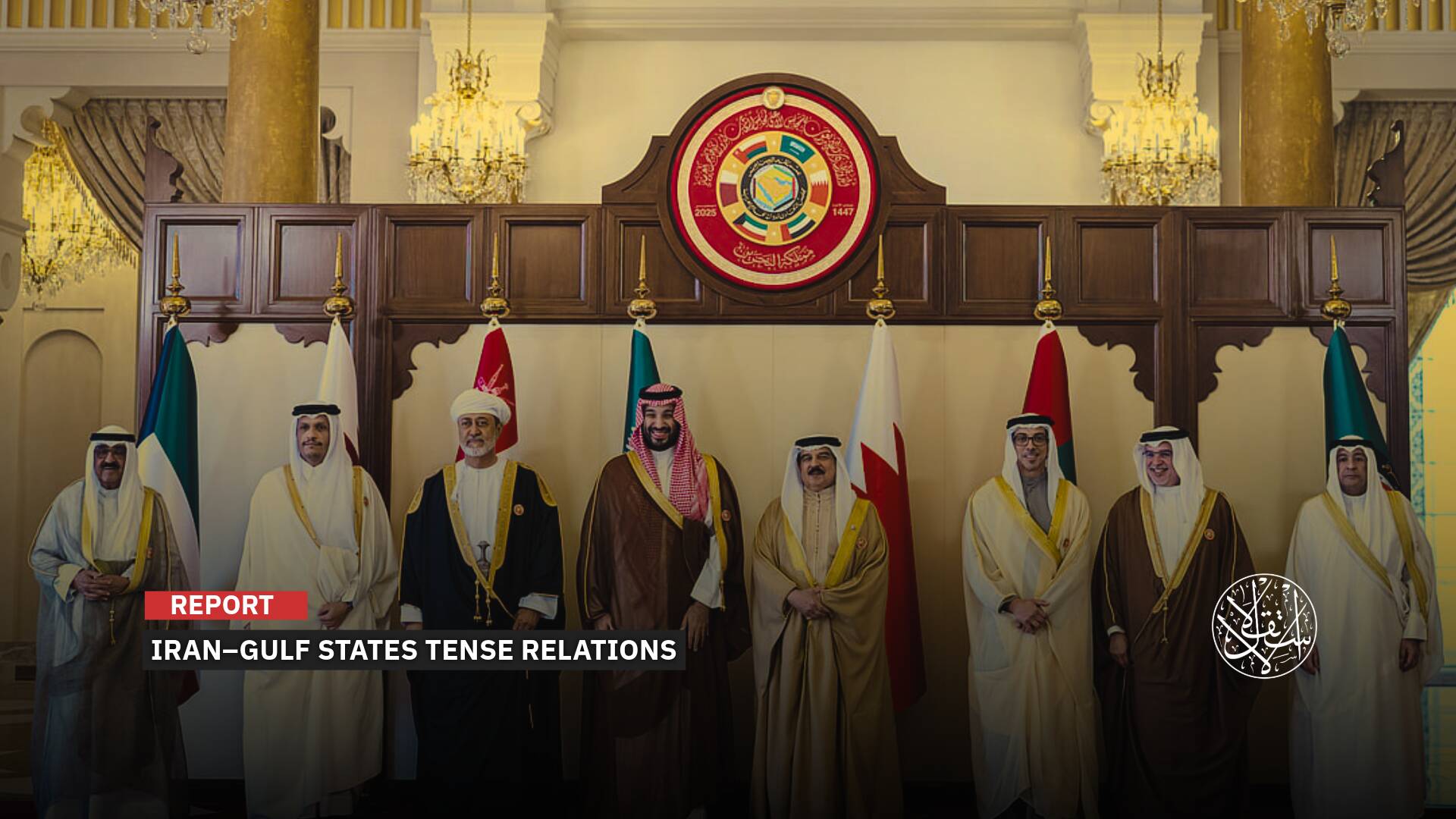Jordan's Ban on Muslim Brotherhood: 'Most Dangerous Historically,' What Are the Repercussions?

"The procedures used for the first time suggest a clear intention to criminalize the group."
In a move that marked a turning point in one of the region’s most complex political relationships, Jordan officially banned the Muslim Brotherhood, raising urgent questions about the broader impact on the country’s political and social fabric.
Founded in 1945, the Brotherhood has long been a powerful force in Jordanian politics and civil society. It recently gained ground through its political arm, the Islamic Action Front, which secured major wins in parliament and played a leading role in mobilizing protests against Israeli Occupation’s war on Gaza.
But tensions between the group and the Jordanian state have escalated dramatically in recent months, particularly over what the Brotherhood sees as the government’s weak stance on Gaza amid an unfolding genocide committed by “Israel.”
Ban and Crackdown
On April 23, 2025, Interior Minister Mazen al-Farrayeh declared the Brotherhood an unlicensed and disbanded group, making all its activities illegal and warning that any affiliation or promotion of its ideas is now a criminal offense.
At a press conference, al-Farrayeh accused Brotherhood members of “operating in the shadows” and engaging in activities that threatened public order and national unity.
In addition to the ban, the government announced the seizure of the group’s assets, both movable and immovable, under judicial orders. Authorities also barred political parties, media outlets, civil society organizations, and individuals from engaging with or referencing the group and its affiliates.
The ministry stated that further legal action would follow based on the outcomes of ongoing investigations.
The ban came just a week after Jordan’s intelligence agency said it had foiled plots aimed at destabilizing the country, revealing that it had arrested 16 suspects after tracking them since 2021.
According to the agency, the group had been working on building missiles with local and imported components, stockpiling explosives and firearms, and even hiding a fully assembled rocket. The plot reportedly included plans to manufacture drones and train recruits both inside and outside the country.
A video released by Jordanian security services featured confessions from suspects, including one who said he received $20,000 from a Brotherhood member, and another who claimed to have trained in rocket-making in Lebanon.
That same day, government spokesperson Mohammad Al-Momani confirmed all those arrested had been referred to the State Security Court on terrorism-related charges after the public prosecutor approved the indictment.
Al-Momani said the suspects were affiliated with “an unlicensed and dissolved organization,” a clear reference to the Muslim Brotherhood.
In response, Hamas issued a statement on April 22 saying it had reviewed the case and was confident the young men involved had no intention of threatening Jordan’s security, especially at a time when “Israel” continues its brutal onslaught in Gaza.

A Historic Rift?
Commenting on the fallout of the ban, Palestinian journalist Abdel Bari Atwan warned that Jordan is entering one of the most turbulent chapters in its modern political history.
“The Jordanian street is in a state of unprecedented turmoil and polarization,” he wrote in an April 23 column in Rai Alyoum, “driven by the rapid deterioration in ties between the state and the Muslim Brotherhood, the country’s most influential and popular movement.”
Atwan noted that Jordanian society is now split into two camps: one backing the state’s iron-fist approach, and another siding with the Brotherhood, dismissing the government’s narrative about the 16 alleged Islamists arrested for plotting unrest.
Those in the latter camp, he said, believe the accused had no intention of undermining Jordan’s stability. Rather, they see them as “resistance fighters” trying to support their Palestinian counterparts facing genocide and ethnic cleansing, through the smuggling of rockets, drones, and other weapons.
Atwan described the rift as “perhaps the first—and most dangerous—moment when ties between the Jordanian state and the Brotherhood have collapsed from a long-standing alliance into full-blown rupture, possibly even confrontation,” warning of the broader regional implications in such a volatile time.
He also pointed to the Brotherhood’s continued influence in the streets, noting that secular, leftist, and nationalist voices have been rapidly eclipsed by rising Islamist momentum, reflected in the ongoing protests led by Islamists in solidarity with Gaza and the West Bank, and in criticism of the Jordanian government’s inaction.
Atwan warned the ban could be only the beginning. A likely next step, he said, would be dissolving the group’s political wing, the Islamic Action Front, which currently holds 17 seats in parliament.
“But taking that step, banning the IAF and removing its MPs, could lead to the dissolution of the current parliament altogether and the announcement of new elections,” he wrote, “this time without the participation of Islamists.”
Atwan concluded with a stark assessment: “Jordan may now be entering the most dangerous phase in its modern history. Outlawing the Brotherhood, a deeply rooted and popular movement, could push it underground and hand the reins to its more hardline leadership, particularly among the youth and East Bank Jordanians, at the expense of its more moderate and pragmatic factions.”

Turning Point
Political analyst Amer al-Sabaileh has described the Jordanian authorities’ recent crackdown on the Muslim Brotherhood as a “comprehensive turning point” in the group’s relationship with the state.
In comments to the U.S.-based Alaalam on April 23, al-Sabaileh said that “for the first time, the language and measures adopted clearly point to an intent to criminalize the Brotherhood, treating it under anti-terrorism laws and stripping it of its popular base.”
Echoing this view, associate professor of Public Law Laith Nasrawin stressed that the ban renders the Brotherhood an illegal entity. “Any affiliation with the group, or activity under its umbrella, is now considered a criminal offense punishable by imprisonment and fines under Jordanian penal law,” he told Al-Jazeera Mubasher the same day.
Nasrawin added that Jordan’s cybercrime law also applies, criminalizing the publication, circulation, or hosting of Brotherhood statements or leadership, whether directly or indirectly.
Despite the security raids targeting the headquarters of the Brotherhood’s political arm, the Islamic Action Front, including the seizure of computers and documents, Nasrawin noted that the party remains legally active. However, he emphasized the need to sever all ties with the Brotherhood and end any dual membership between the group and the party.

Wael Saqqa, Secretary-General of the Islamic Action Front, stated that his party remains legally licensed and has operated under Jordan’s political parties law for 31 years. He expressed surprise at the security forces’ coordinated visits to all party branches, saying, “We complied with the judicial authorities, opened our branches, and all rooms and files were made fully accessible.”
“We believe all of our activities are in accordance with the law. If any legal action is taken against us, it will be resolved through Jordanian law and the judiciary, in which we have full confidence. We have nothing to hide beyond what the law permits,” he said during a press conference held at the party’s headquarters on April 23.
“The current crisis reflects a broader challenge in the country’s relationship with political engagement.”
“We have always contributed positively to Jordan’s political modernization framework and continue to advocate for it as the only viable path for democratic practice in the country,” Saqqa added.
He stressed that “no one is above the law,” voicing confidence that “Jordan’s broad-minded leadership will tackle this issue wisely, with strengthening the country’s internal front as a top priority.”
Meanwhile, Musa Maaytah, head of Jordan’s Independent Election Commission, warned that legal measures would be taken if the Islamic Action Front is confirmed to have ties to the recently apprehended cell.
In remarks to Roya TV on April 23, Maaytah revealed that “three of the suspects in the cell are members of the Islamic Action Front, though none of them are parliamentarians.”
Sources
- Jordan announces a ban on the activities of the Muslim Brotherhood [Arabic]
- Jordan bans the Muslim Brotherhood
- Analysts: These are the repercussions of banning the Muslim Brotherhood in Jordan [Arabic]
- The Jordanian Brotherhood and the regime: 80 years of a volatile relationship [Arabic]
- Banning the So-Called Muslim Brotherhood Reveals the Truth [Arabic}
- Maayteh speaks to Roya about the fate of the Islamic Action Front party [Arabic]
- Saqqa: We are all under the rule of law [Arabic]
- Jordan bans the Muslim Brotherhood [Arabic]












